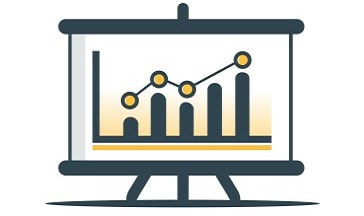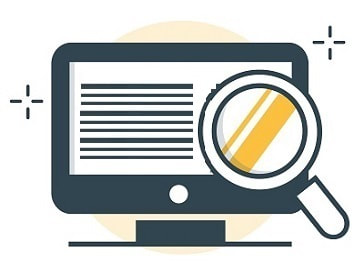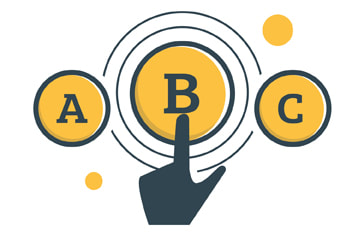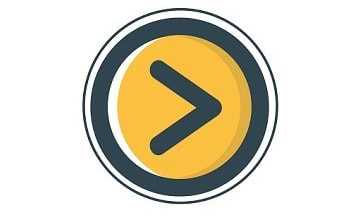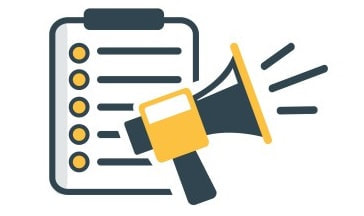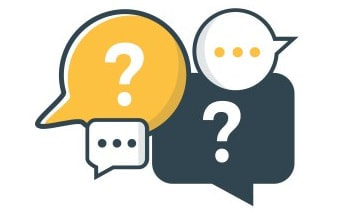Forex Trading Education - We Critique Courses, Seminars, Gurus, Forums, Mentors, Videos and More
The internet has revolutionised the way we learn. However, anyone can publish content online, and that information isn’t always correct. This guide will help you discover helpful forex trading courses and tools.
Updated 22 July 2024
Summary
Know this first:
Our guide explains:
Summary
- Learning something as complex as trading forex is challenging. Not only is the topic itself challenging to master, but there is an overabundance of information. Finding impartial and reputable sources is a challenge.
- Day trading forex and other financial markets aren’t something you can study at university; it’s somewhat of a niche skill that you will most likely study online or at specialised seminars.
- Simply reading books and watching YouTube videos isn’t enough for many aspiring traders. Most people require an interactive learning experience to interact, ask questions and get feedback from teachers and other students.
- Unfortunately, the financial services industry is notorious for attracting unscrupulous characters who prey on inexperienced investors. Naive investors are routinely sucked in by educational courses and YouTube videos showing helicopters and fast cars all paid for by "trading". We don't believe a word of it.
- You should always exercise extreme caution when trusting others with your money. This guide explores the various methods you can start learning forex and highlights the red flags to look out for (and there are many).
Know this first:
- Trading forex and CFDs with leverage is incredibly risky and requires substantial knowledge and practice.
- The world of online trading education is a lot like the wild west. Some people are there to make a quick buck, and others try to do their best to provide reliable services that help you improve your trading skills. It's hard to know who to trust. Your learning journey will take you to unregulated education resources.
- There is no professional association responsible for maintaining standards for educating amateur day-traders. Therefore, the level of detail and quality of courses varies massively.
- Be aware that the internet is a hotbed of scams and fraud. Be careful who you trust and be careful when sharing your information. Learn more about investment scams targeting New Zealanders.
- Be extremely careful when signing up for courses with high upfront costs. You will not get a refund if you change your mind or the course isn’t what you expected.
- Many forex brokers offer educational content for their clients. However, the content provided is either superficial or incredibly focused on specific topics.
- There are hundreds of YouTube channels publishing high-quality educational content for free. It’s easy to see whether the information is helpful by reading the comments.
- There are many sites offering premium courses from self-proclaimed experts and veterans. These courses range in price dramatically, starting from a few dollars up to several thousand dollars.
- While this guide is written to help anyone looking at foreign exchange, the principles apply to CFDs, stocks, options and futures trading products.
Our guide explains:
MoneyHub Founder Christopher Walsh shares his views:
|
"Foreign Exchange trading education is a subject close to my heart...for all the wrong reasons. Quite frankly, I don't believe that anyone making so much money trading will drop everything and want to teach others for money and commit to be their 'mentor'. Why? Because it's not human nature to share such skills with the general public, especially in financial markets. Also, endless complaints, media reports and regulator investigations around countless forex trading education programs suggest that the 'riches' only come from selling courses, and not trading".
"I'm very cynical around the success of anyone who takes part in a forex trading course - I read too much to believe there is a pot of gold at the end of the 'education' rainbow. However, I know that many students lose more money than their original course fees when trades turn unfavourable time after time, night after night. It's not uncommon to feel cheated and ashamed when you give up, and this is why I urge you to read this guide in detail as it is built on years of experience. Internet forums are filled with regretful 'students' who spent lots of money on forex training courses and learned the hard way - I don't want you to be one of them". "Many people think that they will pay $5,000 for a course, make a few trades and soon be flying around in helicopters. I don't know whether this is the marketing pushed by 'gurus' or general dreaming, or a bit of both, but the reality couldn't be more disappointing and soul destroying". "If you are planning to part with money for a foreign exchange trading course, or any paid service relating to making money on foreign exchange, please triple-check you understand the costs and risks. In many cases, you won't have any right to get your money back should you change or mind or the course fail to deliver. And if you're told returns or profits are guaranteed, run a mile". "Don't be impressed by someone who has 'appeared' in The Economist or Forbes - that's not an achievement or an endorsement of their trading skills. And don't fall for FX traders' Instagram lifestyle - most (or all) of it is fictitious. I worked at an investment bank where each head trader earned at least $10m a year. People who make real money in FX markets don't flash it around on YouTube and Instagram. Trading from home following a course is not a fast-track way to get rich". "I believe it takes years to learn how to trade in foreign exchange profitably. You can't 'learn it all' in one course. You may learn the basics and how to minimise losses, but this information is free on YouTube, and you don't need to pay anyone to tell you entry-level information. So I ask you - please be careful as there are a lot of bad players". |
MoneyHub Founder
Christopher Walsh |
Forex trading courses
There are many independent forex trading academies offering online courses and some of the other educational tools described in this guide. Although formats vary, forex courses usually consist of a library of prerecorded videos and guides mixed with some practice sessions with tutors. The academy prepares the study material, meaning each course has different content.
Unlike most other professional disciplines, such as accounting, advertising or journalism, there isn’t a professional association responsible for maintaining standards for educating non-professional day-traders. Therefore, the level of detail and quality of courses can vary massively, as can prices.
Costs and Courses
Top Tip: Instead of buying individual courses, there are many courses available on Skillshare, which lets you access all the available courses on-demand with a premium subscription. Skillshare is great because if you don’t like a particular course format or instructor, you can switch; plus, you can learn many other subjects.
Unlike most other professional disciplines, such as accounting, advertising or journalism, there isn’t a professional association responsible for maintaining standards for educating non-professional day-traders. Therefore, the level of detail and quality of courses can vary massively, as can prices.
Costs and Courses
- For intensive courses that last between one and three months, the cost is between NZ$1,000 and NZ$5,000.
- Other academies offer a monthly subscription of around NZ$100 per month and let you learn at your own pace.
- There are many free forex trading courses online. However, many of the free courses simply want to collect your contact information and encourage you to sign up with a broker as soon as possible and definitely before you’re ready so that they can earn a referral fee. Or they are offering a freemium model, where only part of the course is free.
- Some forex trading courses are available on Coursera.org, a reputable ed-tech company offering courses from top schools and universities. One such course offered is a Practical Guide to Trading Specialisation course created by Interactive Brokers. This course takes approximately four months to complete.
- Udemy.com is a popular peer-to-peer education site where there are dozens of forex trading courses from different tutors covering various areas of the topic. The best selling course on Udemy, Forex Trading A-Z™ - With LIVE Examples of Forex Trading, has almost 20,000 reviews and has been taken by over 77,000 students. The course costs approximately NZ$155 and offers 5.5 hours of content.
Top Tip: Instead of buying individual courses, there are many courses available on Skillshare, which lets you access all the available courses on-demand with a premium subscription. Skillshare is great because if you don’t like a particular course format or instructor, you can switch; plus, you can learn many other subjects.
Forex webinars
A webinar is an online seminar; seminars are essentially a single class focusing on a specific topic rather than a course. Many of the world’s leading brokers, such as IG Markets and CMC Markets, offer regular webinars to help their clients grow as traders.
The reason brokers offer free content is to retain you as a client. If you’re successful, you’ll continue trading with them for longer. Therefore, it’s a worthwhile investment. As forex brokers are regulated financial institutions, they can’t publish incorrect or misleading content. Therefore, forex webinars are an excellent way to find high-quality forex education content that doesn’t cost a cent. However, you still need to find a reliable forex broker to get your information.
The reason brokers offer free content is to retain you as a client. If you’re successful, you’ll continue trading with them for longer. Therefore, it’s a worthwhile investment. As forex brokers are regulated financial institutions, they can’t publish incorrect or misleading content. Therefore, forex webinars are an excellent way to find high-quality forex education content that doesn’t cost a cent. However, you still need to find a reliable forex broker to get your information.
Forex mentorship programs
A forex mentor is like a personal trainer, except instead of working out, you’re learning how to trade forex. The role of a forex mentor depends on their personality. Some mentors will just mentor you, which can be helpful when facing challenges and obstacles that make you want to throw in the towel, which might not be particularly helpful for a new trader. However, some forex mentors may wear the hat of a teacher, trainer and coach, which will benefit younger traders.
Many forex mentors are active on social media and have websites advertising their services. A forex mentor can be crucial for traders committed to a long term trading career. Our comparison of leading New Zealand forex brokers has more information.
Many forex mentors are active on social media and have websites advertising their services. A forex mentor can be crucial for traders committed to a long term trading career. Our comparison of leading New Zealand forex brokers has more information.
Forex trading rooms
A forex trading room is essentially a private forum or chatroom where traders share and discuss ideas, technical analyses and research. They are normally hosted on private Discord servers or behind a paywall on a website.
There is usually a common characteristic uniting the members of a given trading room, such as a particular trading strategy, analytical methodology, or alumni of the same academy. Many forex academies and mentors offer trading rooms to support their community.
Trading rooms are a great way to learn how other traders think and get critical feedback on your ideas and approaches. You might think the idea of traders sharing their ideas is strange, but it’s incredibly common. In fact, the Bloomberg terminal, a trading platform used by the largest hedge funds and financial institutions, has an integrated chat feature for traders to discuss their trade ideas
There is usually a common characteristic uniting the members of a given trading room, such as a particular trading strategy, analytical methodology, or alumni of the same academy. Many forex academies and mentors offer trading rooms to support their community.
Trading rooms are a great way to learn how other traders think and get critical feedback on your ideas and approaches. You might think the idea of traders sharing their ideas is strange, but it’s incredibly common. In fact, the Bloomberg terminal, a trading platform used by the largest hedge funds and financial institutions, has an integrated chat feature for traders to discuss their trade ideas
Forex trading forums
A forex trading forum is an online forum dedicated to forex trading topics. Most forums are public and free to access, but there are a few niche forums that require a premium membership. If you don’t want to join a trading room, a forum is a great place to join discussions and browse previous discussions. While forums are a hotbed for scammers, being vigilant and practising common sense will serve you well.
Some of the most popular forex forums include:
Some of the most popular forex forums include:
Best forex trading YouTube Channels
Despite all the solutions listed above, YouTube is arguably the best resource; there are countless channels dedicated to teaching new traders valuable skills. Channels to look at to build foundation knowledge include:
- ForexSignals TV - Great for complete beginners
- The Secret Mindset - Great for learning technical analysis
- UKspreadbetting - Great for learning how financial markets work and learning new concepts
- Rayner Teo - Great for learning trading strategies
Conclusion
- There are many helpful forex trading courses, mentors and communities, but there are also just as many ineffective ones created for the sole purpose of swindling naive newbies. Unfortunately, as a newbie, it’s hard to evaluate the quality of a course.
- We suggest going through the free resources first to build foundation knowledge before investing in paid courses or subscriptions.
- If you eventually decide to pursue premium courses, try to find services that offer modest monthly subscriptions rather than high up-front costs. That way, you can easily cut your losses if the services don’t meet your expectation.
- Keep in mind that if something is offered to you for free, it’s a good idea to understand their motives. For example, a forex broker offering high-quality content makes sense, but why would someone go through the trouble of building an academy only to provide free access.
- And finally, before spending any money on courses and other tools, consider if you really need them. We would argue that the best resources are available for free, why the worst is a strictly pay-for-seminars-type experience.
Frequently asked questions
How much should I pay for a forex trading course?
The cost of a forex trading course can range from a few dollars to thousands of dollars. A course for NZ$100 that teaches you nothing is a total waste of money, yet a course for NZ$3,000 that teaches you how to become a profitable trader is worthwhile. Unfortunately, this is a highly subjective question, and the answer will only be clear once you complete the course. We suggest going through the free resources first to build foundation knowledge before investing in paid courses or subscriptions.
What is the most reliable forex trading course?
If you’re new to the online trading world, we recommend finding courses on well-known platforms like Coursera, Udemy or Skillshare or finding courses offered by regulated forex brokers
Are forex courses a scam?
Many forex courses are nothing but a hustle. It’s a great scheme for the operator because they can create courses using content that’s already freely available online and sell it for thousands of dollars. When the customers complain, it’s easy to fight any claims because technically, they delivered the course as promised.
However, not all forex courses are a scam. Many academies offer valuable lessons and materials that will shape your career as a trader. Unfortunately, it’s hard to evaluate which ones are good and which are not. Ironically, you can take a course on forex scams on Udemy.com to learn more and avoid the traps.
However, not all forex courses are a scam. Many academies offer valuable lessons and materials that will shape your career as a trader. Unfortunately, it’s hard to evaluate which ones are good and which are not. Ironically, you can take a course on forex scams on Udemy.com to learn more and avoid the traps.




